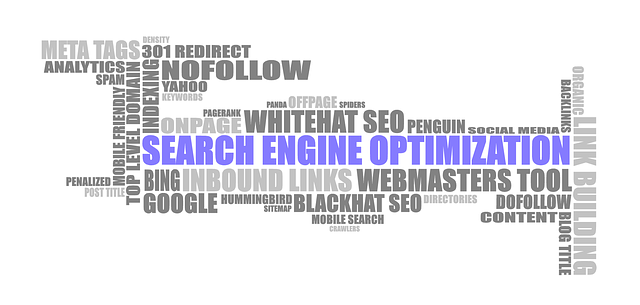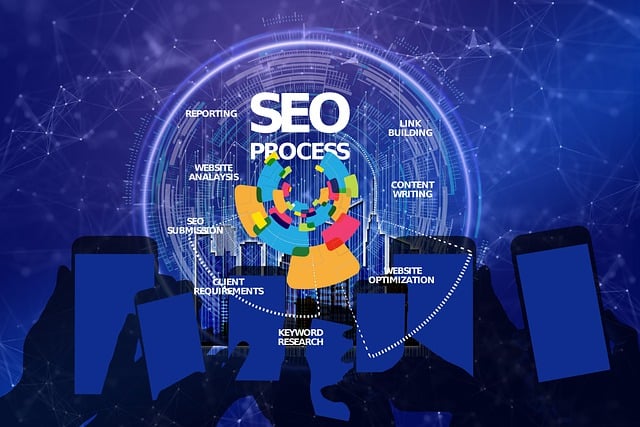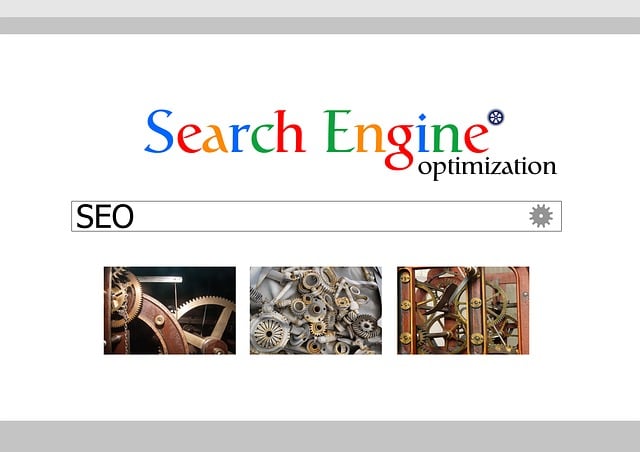In the competitive e-commerce sector, Search Engine Optimization (SEO) is a powerful tool with multifaceted benefits of Search Engine Optimization. It boosts visibility, enhances credibility, and drives organic traffic by optimizing content for search engines. Effective SEO strategies lead to longer browsing sessions, higher conversion rates, and stronger customer engagement, ultimately boosting sales and long-term success. Through keyword optimization, high-quality backlinks, local SEO, and data-driven analytics, e-commerce businesses can leverage the benefits of Search Engine Optimization to thrive in a digital era.
In today’s digital landscape, the benefits of Search Engine Optimization (SEO) are undeniable for e-commerce growth. Understanding SEO fundamentals is crucial for online visibility, as it drives customer reach and engagement. This article delves into the strategic aspects of e-commerce SEO, exploring keyword research strategies, on-page optimization techniques, building high-quality backlinks, local SEO integration, and key performance indicators (KPIs) to measure success. By implementing these tactics, businesses can unlock website traffic, enhance product discoverability, and ultimately, drive sales.
Understanding E-commerce SEO: The Foundation of Online Visibility

In the dynamic landscape of e-commerce, understanding and leveraging Search Engine Optimization (SEO) is akin to navigating a bustling metropolis—it’s the key to standing out amidst the crowd. SEO for e-commerce isn’t merely about increasing online visibility; it’s the foundation upon which sustainable growth is built. By optimizing websites for search engines, businesses can attract their target audience with precision, ensuring that potential customers find them when they’re ready to buy.
The benefits of SEO are multifaceted and profound. It enhances website credibility by establishing a strong online presence, fostering trust among consumers. Effective SEO strategies also improve user experience, making sites more accessible and engaging, which encourages longer browsing sessions and higher conversion rates. In today’s digital era, where buyers often start their purchasing journey with a simple search query, understanding and implementing the right SEO tactics can drive organic traffic, boost sales, and set e-commerce businesses on a path to long-term success.
How Search Engine Optimization Boosts Customer Reach and Engagement

Search Engine Optimization (SEO) plays a pivotal role in amplifying an e-commerce site’s visibility and accessibility, ultimately driving customer reach and engagement. By optimizing web content with strategic keywords, phrases, and metadata, SEO ensures that your online store ranks higher on search engine results pages (SERPs). This increased ranking translates to greater organic traffic, as more potential customers are likely to click on the top-ranking listings.
Beyond directing traffic, effective SEO engages users through tailored experiences. When search algorithms deliver relevant product information and descriptions that match user queries, it fosters trust and encourages exploration. Customers who find what they’re looking for seamlessly are more inclined to browse, interact with, and ultimately make purchases from your e-commerce platform, leading to higher conversion rates and a stronger online presence.
Unlocking Website Traffic: Strategies for Effective Keyword Research

Unleashing website traffic is a key aspect of boosting e-commerce sales, and effective keyword research is at the heart of this strategy. Search Engine Optimization (SEO) plays a pivotal role in increasing visibility among potential customers. By understanding user search intent and aligning your content with relevant keywords, you can attract the right audience to your online store. This process involves extensive research to identify high-value keywords that reflect customer queries.
Through tools like Google Keyword Planner, you can uncover search terms with high volume but lower competition, offering a strategic advantage. Targeting these keywords in product titles, meta descriptions, and content not only enhances your site’s ranking on search engine results pages (SERPs) but also provides valuable insights into customer preferences. This data-driven approach ensures that your e-commerce platform becomes a hub for relevant traffic, ultimately driving conversions and fostering business growth.
On-Page SEO Techniques to Enhance Product Discoverability

Optimizing your e-commerce site for on-page SEO is a strategic move to boost product discoverability and attract more customers. This involves refining various elements within your product pages to align with search engine algorithms, ultimately increasing organic traffic. One key technique is keyword optimization, where you seamlessly integrate relevant keywords into titles, meta descriptions, headings, and content. The right keywords can increase visibility for specific products or categories, drawing in targeted audiences who are more likely to convert.
Another effective on-page SEO practice is optimizing product URLs. Structured and descriptive URLs not only provide context to search engines but also enhance the user experience. This simple yet powerful technique can improve click-through rates and signal to search algorithms that your content is valuable and relevant. Additionally, ensuring high-quality, unique product descriptions enriches the overall user experience while providing another opportunity to incorporate targeted keywords naturally, further boosting your site’s SEO performance.
Building High-Quality Backlinks: A Key to E-commerce Authority

Building high-quality backlinks is a cornerstone strategy in e-commerce SEO, playing a pivotal role in establishing your online store’s authority and visibility. These links from reputable websites act as votes of confidence in the eyes of search engines, signaling that your e-commerce platform offers valuable content and products. By securing backlinks from industry influencers, trusted brands, or relevant blogs within your niche, you’re not only driving targeted traffic but also enhancing your site’s credibility. Search engines like Google use these links to assess the relevance and trustworthiness of your website, directly impacting your search rankings.
The benefits of a robust backlink profile are manifold. It improves your site’s domain authority, making it easier for potential customers to find you through organic search results. Well-placed backlinks can also help in diversifying your customer reach by driving referrals from other websites. Additionally, they contribute to a better user experience, as visitors navigate through relevant resources linked from your site. As you build an extensive and authoritative backlink network, your e-commerce platform gains recognition as a reliable source of information and products, leading to increased sales and market dominance.
Local SEO for Physical Stores: Expanding Your Online Presence

Local SEO is a powerful tool for physical stores looking to boost their online presence and drive more foot traffic. By optimizing your Google Business Profile, including accurate NAP (Name, Address, Phone number) information, you ensure that your business appears in local search results, helping potential customers find you easily. This strategy is especially beneficial for small businesses aiming to compete with larger corporations by giving them a local advantage.
The benefits of Search Engine Optimization extend beyond increasing visibility; it also enhances customer engagement and loyalty. When local SEO is executed effectively, customers are more likely to choose your store over competitors due to the convenience of in-person shopping and the personalized experience you offer. This can lead to higher sales, improved customer retention, and a positive reputation that encourages word-of-mouth marketing.
Measuring Success: Analytics and KPIs for E-commerce SEO Optimization

Measuring success is a vital aspect of SEO for e-commerce growth, as it helps to understand the benefits of optimization strategies. Analytics and Key Performance Indicators (KPIs) provide valuable insights into consumer behaviour, traffic sources, and conversion rates. By tracking these metrics, businesses can gauge the effectiveness of their SEO efforts. For instance, an increase in organic search traffic indicates successful keyword targeting and content optimization, leading to improved visibility and potential sales.
Conversion rate optimization (CRO) is another critical KPI, as it highlights how well your website is performing in converting visitors into customers. Tools like Google Analytics can help identify bottlenecks in the user journey, allowing for data-driven decisions to enhance the overall shopping experience. Regularly reviewing analytics enables e-commerce businesses to refine their SEO strategies, ensuring ongoing growth and a competitive edge in the digital marketplace.
